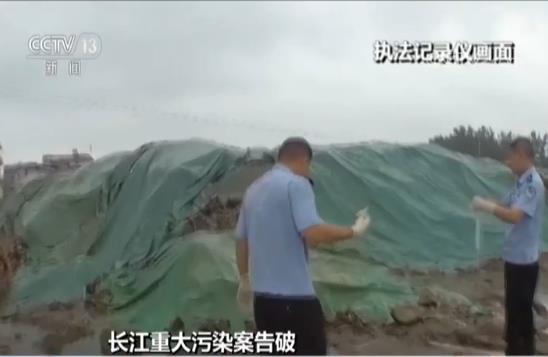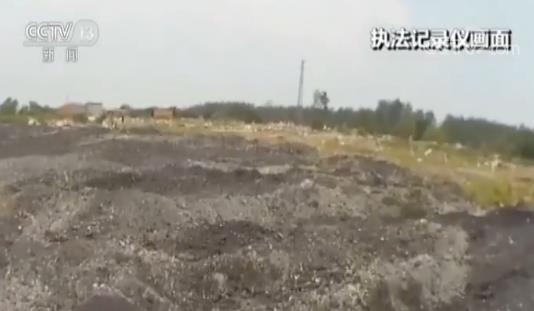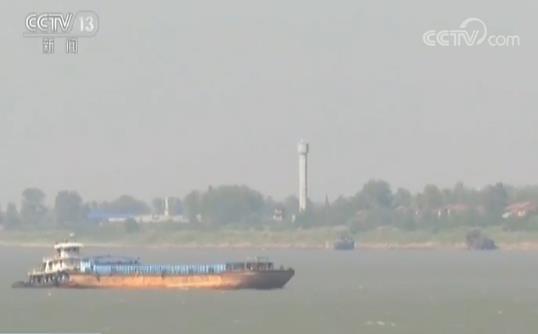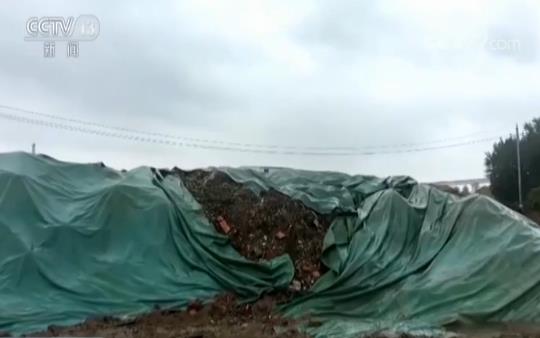Major pollution case in the Yangtze River solved: six suspects were arrested for illegally dumping 4,400 tons of waste.
CCTV News:After more than three months of careful investigation, recently, the Yangtze River Shipping Public Security Bureau cracked a major environmental pollution case supervised by the Public Security Bureau of the Ministry of Transport, initially verified 4,400 tons of toxic substances polluting the Yangtze River environment, involving more than 300,000 yuan, and arrested 6 suspects involved.

A few months ago, Jiujiang Branch of the Yangtze River Shipping Public Security Bureau received a report from the masses in Xiaochi Town, Huangmei County, Hubei Province. Huahong Wharf near the Yangtze River was suddenly filled with a lot of pungent industrial waste residue, which had a great impact on the lives of nearby residents.
Residents of Xiaochi Town, Huangmei County, Hubei Province"It stinks. People really can’t stand it. I wake up in the middle of the night. Every time I smell the smell, I don’t know what it is, and it still stinks."
Cheng Longhua, police officer of Jiujiang Branch of Changjiang Shipping Public Security Bureau: "Visually, there are about 1000 tons of solid waste. This solid waste is black with a little sticky solid. If this water rises, some of this solid waste may flow into the Yangtze River."

As the incident occurred during the flood season, the dumping site of solid waste was only 20 meters away from the Yangtze River water. After receiving the police, the police quickly disposed of it, and took samples and sent them to the local environmental protection bureau. After monitoring, it was confirmed that the waste was a toxic substance of heavy metals, mainly arsenic and zinc.
Where did all this waste come from? And who dumped it here? Due to the importance of the case involving environmental protection in the Yangtze River, the Public Security Bureau of the Ministry of Transport also listed the case as a listed supervision case. The police learned by visiting the surrounding docks that these solid wastes may have been dragged here by a man surnamed Xiao to dump them. In the end, the police arrested Xiaomou in Nanchang according to the clues. Xiaomou confessed to his criminal facts and explained that the toxic substances containing heavy metals came from the waste materials produced in the production process of a thermal power plant in Zhejiang.

According to the investigation by the police, these industrial wastes should have been entrusted to relevant qualified units for treatment at the price of 600 yuan per ton. However, the suspects involved in the case did not have relevant qualifications, and subcontracted them from the relevant person in charge of the enterprise at a price lower than that of 600 yuan per ton, thus profiting from each other, and illegally transported them across provinces by ship, and finally illegally dumped them on the Yangtze River.
Zhou Zhihao, a policeman of Jiujiang Branch of Changjiang Shipping Public Security Bureau."They undertook six ships in total, which were shipped in a total of 4,400 tons and dumped on the beaches of three docks along the Yangtze River."

At present, the main suspect Xiaomou and other people involved in the case have all arrived at the case. Among them, Xiaomou, Huangmou and Shumou have been arrested and the remaining three have been directly charged. According to Article 338 of the Criminal Law of People’s Republic of China (PRC), whoever, in violation of state regulations, discharges, dumps or disposes of radioactive wastes, wastes containing infectious disease pathogens, toxic substances or other harmful substances, which seriously pollutes the environment, will be sentenced to fixed-term imprisonment of not more than three years or criminal detention. If the consequences are especially serious, he will be sentenced to fixed-term imprisonment of not less than three years but not more than seven years and will also be fined. At present, 4,400 tons of toxic substances have been completely cleared, and the case is still under investigation.
Zuo Xiaojian, Deputy Director of Jiujiang Branch of Changjiang Shipping Public Security Bureau: "In the next step, our sub-bureau will definitely be in the waters of the Yangtze River, ships and docks, and we will intensify inspections and control. Once we find criminal clues that damage the environment, we will resolutely crack down."